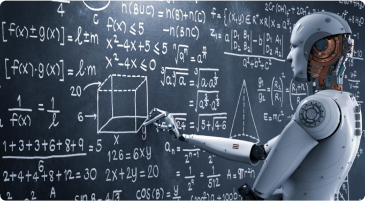
As we stand on the brink of an era defined by rapid technological advancements and unprecedented global challenges, the future of education holds transformative potential. For aspiring educators enrolled in B.Ed programs, understanding these emerging trends and possibilities is crucial for shaping the next generation of learners. This blog explores the dynamic landscape of future education, highlighting key predictions and the exciting possibilities that lie ahead.
Personalized learning is set to revolutionize the educational experience by tailoring instruction to the unique needs, interests, and learning styles of each student.
Leveraging artificial intelligence (AI) and data analytics, educators can create customized learning pathways that adapt in real-time to student performance and preferences.
AI-driven platforms will provide educators with insights into individual student progress, enabling targeted interventions and support. Students will benefit from adaptive learning technologies that offer interactive, engaging content and immediate feedback, fostering a deeper understanding of subjects and promoting self-directed learning.
The integration of technology in education will continue to expand, transforming how teachers deliver instruction and how students engage with content. Virtual and augmented reality (VR/AR) will provide immersive learning experiences, allowing students to explore historical events, scientific phenomena, and complex concepts in a hands-on, interactive manner.
Additionally, the rise of gamification in education will make learning more engaging and enjoyable. Educational games and simulations will motivate students, enhance problem solving skills, and provide practical applications of theoretical knowledge. As future educators, embracing and mastering these technological tools will be essential for creating dynamic and effective learning environments.
Competency-based education (CBE) is an innovative approach that focuses on students' mastery of specific skills and knowledge rather than time spent in the classroom. This model allows students to progress at their own pace, advancing upon demonstrating proficiency in defined competencies.
For B.Ed students, understanding CBE is crucial as it emphasizes the development of clear learning objectives, continuous assessment, and personalized support. By fostering a competency-based approach, educators can ensure that all students achieve a high level of understanding and are prepared for real-world challenges.
In an interconnected world, preparing students to be global citizens is increasingly important. Global citizenship education (GCE) aims to equip students with the knowledge, skills, and attitudes necessary to navigate and contribute to a diverse and complex global society.
Future educators will play a vital role in promoting intercultural understanding, empathy, and social responsibility. Integrating global perspectives into the curriculum, facilitating international collaborations, and encouraging community engagement will help students develop a sense of global awareness and civic duty.
Blended learning, which combines traditional face-to-face instruction with online learning, will become more prevalent. This hybrid approach offers flexibility, allowing students to access learning materials at their convenience while still benefiting from direct interaction with teachers and peers.
For B.Ed students, mastering blended learning techniques will be essential. This includes designing effective online content, utilizing digital assessment tools, and fostering an engaging and collaborative online learning community. Blended learning models provide opportunities for differentiated instruction, catering to diverse learning needs and preferences.
The importance of social and emotional learning (SEL) is gaining recognition as educators understand that academic success is intertwined with emotional well-being and interpersonal skills. SEL programs focus on developing self-awareness, self management, social awareness, relationship skills, and responsible decision-making.
Future educators will need to integrate SEL into their teaching practices, creating a supportive and nurturing classroom environment. This involves using strategies such as mindfulness, conflict resolution, and cooperative learning to help students develop the skills necessary for personal and social success.
The rapid pace of change in education and technology underscores the need for lifelong learning and continuous professional development for educators. Staying current with emerging trends, new pedagogical approaches, and technological advancements is essential for effective teaching.
B.Ed programs will increasingly emphasize the importance of ongoing professional growth, encouraging future teachers to engage in workshops, online courses, and professional learning communities. By fostering a culture of continuous improvement, educators can remain adaptable and innovative in their teaching practices.
Ensuring equity and inclusion in education will remain a critical priority. Addressing disparities in access to educational resources and opportunities is essential for creating a just and equitable society. Future educators must be equipped to recognize and challenge systemic inequities and provide inclusive learning environments that cater to the needs of all students, regardless of their background or abilities.
Implementing inclusive teaching strategies, differentiating instruction, and advocating for equitable policies and practices will be key responsibilities for educators. By championing equity and inclusion, teachers can empower every student to reach their full potential.
The future of education is rich with possibilities, driven by technological advancements, innovative pedagogical approaches, and a commitment to equity and inclusion. For B.Ed students, embracing these trends and preparing to navigate this dynamic landscape is essential. By fostering personalized learning, integrating technology, promoting global citizenship, and prioritizing social and emotional development, future educators can create transformative learning experiences that equip students to thrive in an ever changing world.
As we look ahead, the role of the educator will continue to evolve, demanding adaptability, creativity, and a lifelong commitment to professional growth. By staying informed and embracing innovation, future teachers can shape the future of education, ensuring that it remains a powerful force for personal, social, and global transformation.